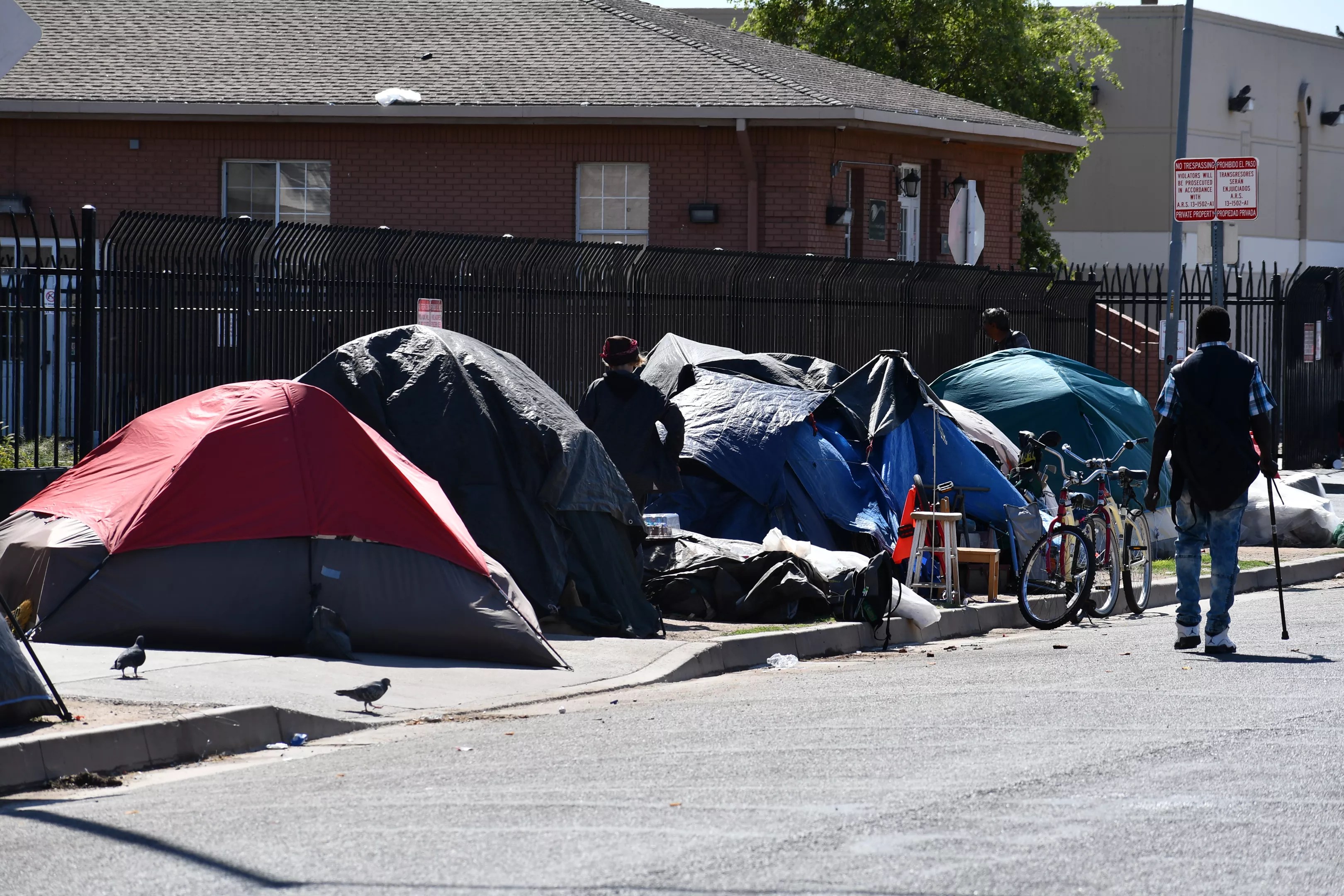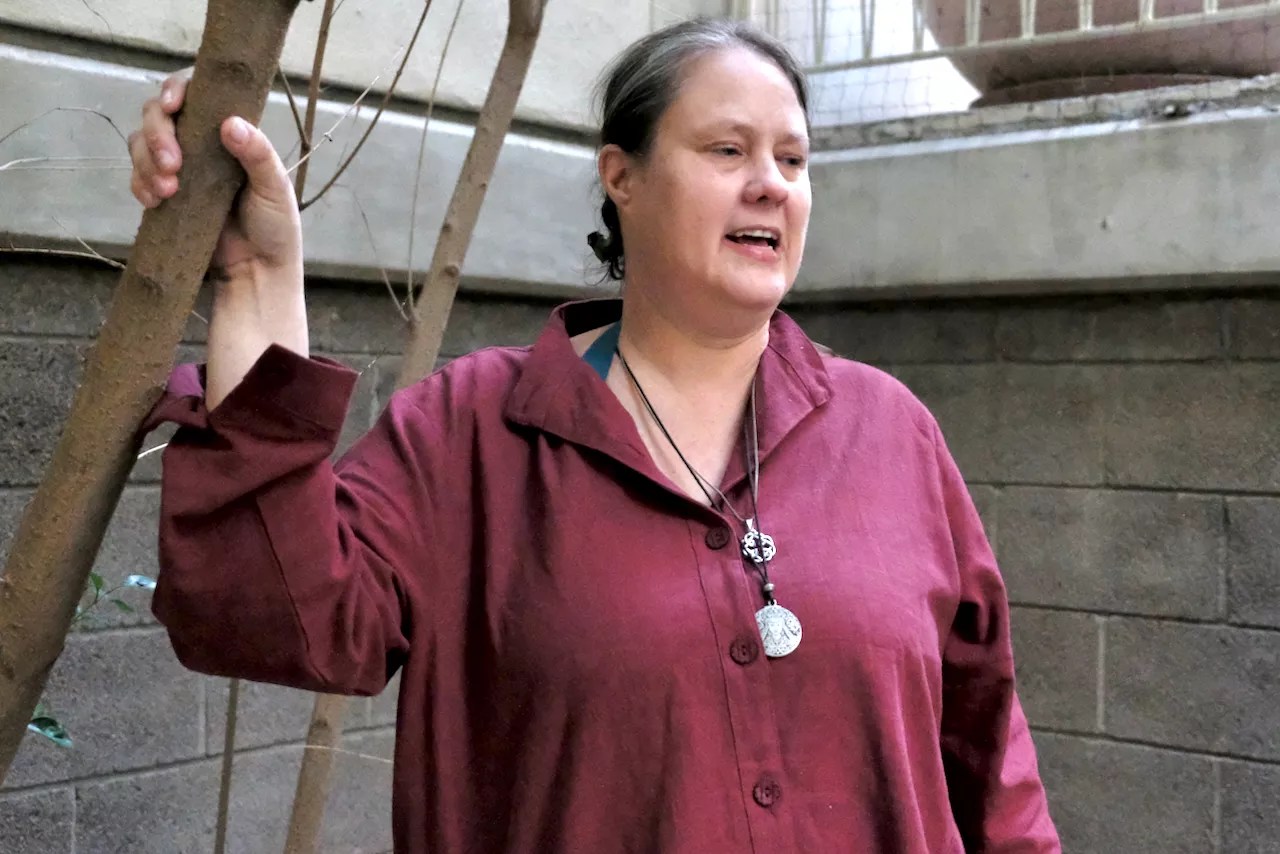
Steven Hsieh

Audio By Carbonatix
In June, the U.S. Supreme Court ruled that municipalities can ban sleeping in public even when a person has nowhere else to go. And in November, Arizona voters passed Proposition 312, which allows people to sue cities for property tax refunds if public nuisance laws such as camping bans aren’t enforced.
Advocates for the unhoused worried the result of both would be more people unable to escape homelessness. Now, the city of Tempe appears to be committed to making that happen.
On Tuesday, Tempe issued a press release announcing it would be “implementing strict enforcement of its urban camping ordinance,” specifically citing the passage of Prop. 312 and the Supreme Court’s ruling in Grants Pass v. Johnson, which upheld the constitutionality of camping bans.
“The Grants Pass decision specifically states that citing people for urban camping is not cruel and unusual punishment,” the release said. “Proposition 312 allows for property owners to apply for a refund from cities and counties for costs related to urban camping if a city does not enforce its ordinances.”
The ordinance in question is Tempe City Code 23-90, which was passed in 1997 and updated in 2018. It bars people from using public property as housing. “This includes pitching tents or building shelters in places such as city parks, preserves, alleys, bus stops, schools or rights of way,” the city’s release said. “It also bans activities such as making fires, storing personal belongings in public spaces and laying down bedding for sleeping.”
In effect, it outlaws most of the things unhoused people do to survive.
The city said anyone who violates the ordinance “will be offered outreach services and given a warning that urban camping is not allowed in the City of Tempe public spaces.” However, after that, violators will be cited with a class 1 misdemeanor, which is punishable by a fine of up to $2,500 or up to six months imprisonment.
“It is hoped that those in need of assistance will take the opportunity to get help,” the city’s release said.
It was a telling use of passive voice. After all, the city’s critics say Tempe isn’t doing much to provide that help.

Elizabeth Venable, co-founder of Fund for Empowerment, said Tempe has “kicked the can along” when it comes to addressing homelessness.
Katya Schwenk
‘Very cynical’
On the “Housing and shelter” section of its website, Tempe pats itself on the back for its approach to helping its unhoused residents. “Tempe is known for its progressive response to addressing homelessness,” the site reads.
Many who work with the unhoused in Tempe scoff at that notion. Fund for Empowerment founder Elizabeth Venable says Tempe has done little to actually help anyone experiencing homelessness.
“Historically, the city of Tempe has kind of kicked the can along on addressing homelessness by relying on other cities to take the lion’s share of the burden of providing actual services,” Venable said. “For many years, there were zero shelters in Tempe.”
Now, there is one city-run shelter: Sue’s Espacio, a 40-room former hotel the city purchased and converted for the purpose in 2021. This year, the city purchased a second property that will add another 60 rooms for the unhoused, though it has yet to open.
But even by Tempe’s own metrics, it is failing badly at housing the homeless. Its statistical database for homelessness outreach shows that this year, a paltry 7% of interactions with unhoused people resulted in them getting housing. As for other services the city might offer, Venable feels those don’t meet the needs of the problem.
“It is very important whether or not outreach services have the capacity to help and what their budget is,” Venable said. “Otherwise the line about ‘we hope they accept help’ is total crap. Often it’s just detox or mental health, and the majority of people don’t qualify. So if they are telling people to accept services that either don’t exist or for which there are exclusion factors such as having to have been addicted to drugs as a qualifier for receiving services, then the statement is very cynical.”
Ron Tapscott, who has worked to feed the homeless and help them get key services, claimed the city works hard to deny services. He alleged that Tempe staffers had used the Homeless Management Information System, which tracks interactions with unhoused people, to identify where people had received services elsewhere in the Valley in order to justify denying those same services in Tempe. Tapscott said he knew of one man Tempe turned away because he had accepted services in Scottsdale just a month before.
A Tempe spokesperson did not immediately respond to a question about Tapscott’s allegation.
“This is a further demonstration that the city is absolutely lacking any moral courage or any decisive action to protect this endangered population,” Tapscott said of the camping ban enforcement.

As part of a plea agreement with Tempe prosecutors, Austin Davis pleaded guilty to one count of violating the city’s special events code and is barred from city parks for 18 months.
TJ L’Heureux
‘Disgusting’
It’s not clear why the city chose Tuesday to broadcast its intention to crack down, or how different the enforcement will be going forward. Austin Davis, who has been targeted by the city for his efforts to feed the unhoused in Tempe parks, noted that the city has been arresting and jailing homeless people all year.
That has included Davis. Earlier this year, Davis was jailed for trespassing in a city park. He’s also now barred from Tempe parks until early 2026 as part of a plea deal he accepted for hosting feedings in Tempe parks in violation of the city’s special permits ordinance.
“It’s not like this is anything new, but it’s like they’re emboldened now by the Grants Pass decision,” Davis said. “They’re putting legality and this law – even if it’s harming people – above our moral standards as humans. I think it’s disgusting. I’m worried about everyone experiencing homelessness.”
The chorus of critics also includes Lauren Kuby, the former vice mayor of Tempe who won election this year to the Arizona Senate, where she will represent a district that includes north and central Tempe. Kuby has helped to continue Davis’ feedings while he has been on probation.
“Just because a hardened SCOTUS deems that citing vulnerable people for urban camping is not cruel and unusual punishment doesn’t mean that a compassionate city shouldn’t adopt a higher moral and ethical standard,” Kuby said via text message. “We can’t solve (the) homelessness crisis by criminalizing the homeless. A fine of $2500 won’t help a family in dire need of housing.”